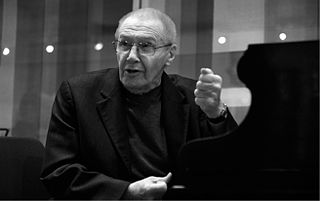
György Kurtág is a Hungarian classical composer and pianist. He was an academic teacher of piano at the Franz Liszt Academy of Music from 1967, later also of chamber music, and taught until 1993.

Békéscsaba is a city in southeast Hungary, the capital of Békés County.

Pál Kadosa was a pianist and Hungarian composer of the post-Bartók generation. His early style was influenced by Hungarian folklore while his later works were more toward Hindemith and expressively forceful idioms. He was born in Levice. He studied at the national Hungarian Royal Academy of Music under Zoltán Székely and Zoltán Kodály. He was appointed to the faculty of the Fodor School in 1927 where he taught until 1943 when he was forced out due to wartime political issues.
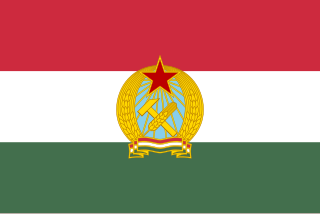
Hungary competed at the 1952 Summer Olympics in Helsinki, Finland. 189 competitors, 162 men and 27 women, took part in 107 events in 15 sports.
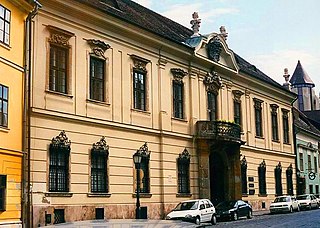
Budapest is the capital and largest city of Hungary; it has long been an important part of the music of Hungary. Budapest's music history has included the composers Franz Liszt, Ernő Dohnányi, Zoltán Kodály and Béla Bartók and the opera composer Ferenc Erkel.
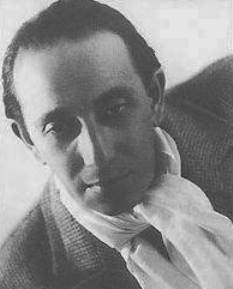
Paul Abraham was a Jewish-Hungarian composer of operettas, who scored major successes in the German-speaking world. His specialty – and own innovation – was the insertion of jazz interludes into operettas.

Vigadó is Budapest's second largest concert hall, located on the Eastern bank of the Danube in Budapest, Hungary.

Budai II. Laszló Stadion is a multi-use stadium in Budapest, Hungary. It is currently used mostly for football matches and is the home stadium of Rákospalotai EAC and 1. FC Femina. The stadium was named after Rákospalota-born Hungarian footballer, László Budai. The stadium is able to hold 10,000 people.

László Budai, also known as László Bednarik, or Budai II, was a former Hungarian footballer and coach. Budai was born in Budapest and played as a midfielder and forward for Ferencvárosi TC, Honvéd and Hungary. During the 1950s he was a member of the legendary Hungarian national team known as the Mighty Magyars. Other members of the team included Ferenc Puskás, Zoltán Czibor, Sándor Kocsis, József Bozsik and Nándor Hidegkuti. The stadium of Rákospalotai EAC was named after him.

The Buda Hills are a low mountain range of numerous hills which dot the Buda side of Budapest, capital of Hungary. The most famous ones located within city limits are Gellért Hill, Castle Hill, Rózsadomb, Sváb Hill, János Hill, Széchenyi Hill and Eagle Hill. These hills consist of both nature and residential areas.
László Weiner was a Hungarian composer, pianist and conductor who was murdered in the Holocaust.
Budai is a semi-historical Chinese monk who is venerated as a deity in Chinese Buddhism.

Gyula Budai is a Hungarian politician, member of the National Assembly (MP) for Nagykálló between 2010 and 2014. He became MP from his party's national list during the 2014 parliamentary election, holding the seat until May 2018. He was re-elected MP in October 2018. He had been a government commissioner in charge of investigations into privatisation deals since July 2010. He served as Deputy Mayor of Kiskunlacháza for a short time in 2010.
Gül Baba is a 1940 Hungarian musical film directed by Kálmán Nádasdy and starring Sándor Kömíves, Zita Szeleczky and Pál Jávor. It was based on the operetta Gül Baba composed by Jenő Huszka with a libretto by Ferenc Martos.
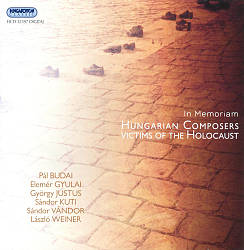
In Memoriam: Hungarian Composers, Victims Of The Holocaust is a 2008 classical music album by pianist Márta Gulyás with Vilmos Szabadi (violin), Péter Bársony (viola), Ditta Rohmann (cello) and other artists from the Hungaroton stable.
33 FC is a Hungarian football club from the town of Óbuda, Budapest.

Miklós Both (born 3 June 1981, Budapest) is a Hungarian composer, performer, folklorist, singer for the band Napra, guitarist, and vitar violin player. He won the Fonogram and Budai awards, and honored with the Hungarian Gold Cross of Merit. His folklore film database has recordings from Ukraine, China, Transylvania, Iran, India and others. In 2015, he was chosen by Öröm a Zene! as musician of the year.
Pál Budai was a Hungarian boxer. He competed in the men's welterweight event at the 1952 Summer Olympics.












